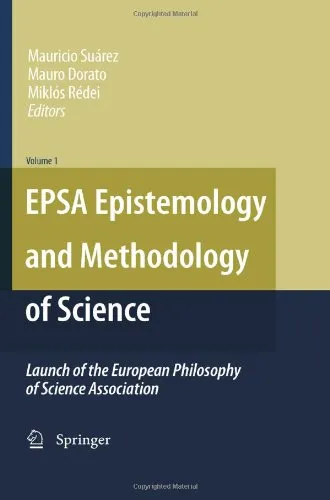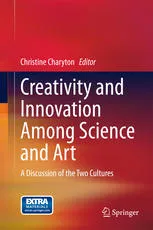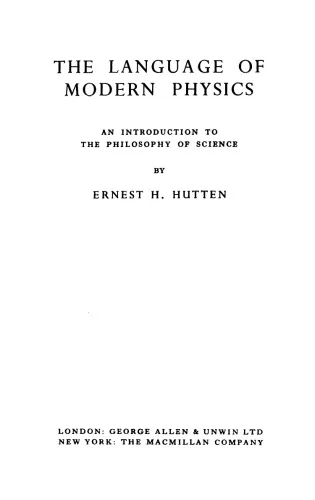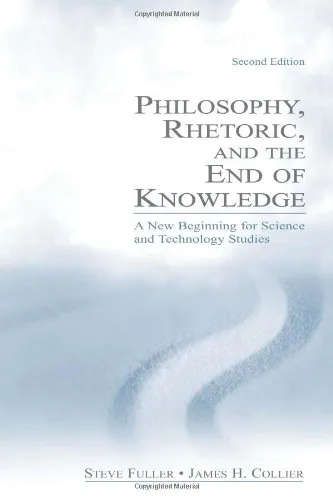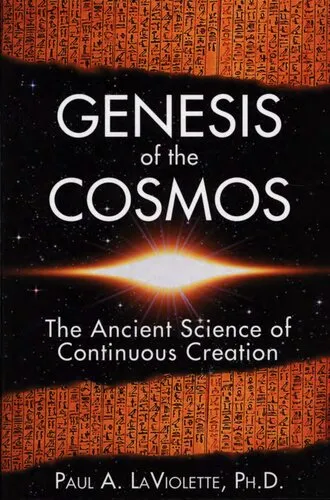EPSA Epistemology and Methodology of Science: Launch of the European Philosophy of Science Association
4.5
Reviews from our users

You Can Ask your questions from this book's AI after Login
Each download or ask from book AI costs 2 points. To earn more free points, please visit the Points Guide Page and complete some valuable actions.Related Refrences:
Introduction to "EPSA Epistemology and Methodology of Science: Launch of the European Philosophy of Science Association"
The book "EPSA Epistemology and Methodology of Science: Launch of the European Philosophy of Science Association" represents a pivotal moment in the development of contemporary philosophy of science. Edited by Daniel Andler, Mauricio Suárez, Mauro Dorato, and Miklós Rédei, the volume brings together diverse contributions from leading scholars within this flourishing field. Published as part of the launch of the European Philosophy of Science Association (EPSA), the book stands as a testament to the strength and vitality of this intellectual movement. Its primary aim is to advance our understanding of the epistemological and methodological underpinnings of science through critical essays and discussions.
The book emerges at a time when philosophy of science is becoming increasingly interdisciplinary, extending its interactions into physics, biology, economics, and cognitive sciences. The contributors seek to bridge theoretical frameworks and practical issues, emphasizing the importance of philosophical inquiry in modern scientific practice. Whether you are a seasoned philosopher, an emerging researcher, or simply an intellectually curious reader, this book offers invaluable insights into both the foundational questions and real-world applications of the philosophy of science.
Detailed Summary of the Book
This landmark text is organized into key themes that explore a wide array of subjects central to the epistemology and methodology of science. Among the discussions are the nature of scientific explanation, the structure of theories, and the role of probability and statistical inference. The book delves deeply into the concept of scientific realism, analyzing its implications for understanding the world and representing phenomena. Additionally, issues concerning causation, laws of nature, and the demarcation of science from pseudoscience are rigorously examined.
A defining feature of the book is its international and collaborative outlook. Scholars from diverse countries and traditions contribute to crafting an inclusive dialogue that reflects the global nature of scientific inquiry. The contributions are prefaced by the overarching goal of fostering philosophy of science as a European initiative, suggesting a collaborative, interdisciplinary approach that transcends national borders.
The essays are structured to not only address long-standing debates but also engage with emerging questions in rapidly advancing disciplines like quantum mechanics, climate science, and artificial intelligence. Methodological pluralism—the notion that there is no single universal method applicable across all sciences—receives considerable attention, making the book indispensable for anyone interested in contemporary discussions on scientific practice.
Key Takeaways
- The philosophy of science continues to evolve, embracing interdisciplinary research and collaboration.
- Foundational topics like causation, explanation, and scientific realism remain central to ongoing philosophical debates.
- New frameworks for understanding scientific progress are necessary, particularly in rapidly advancing fields like AI and biotechnology.
- Philosophy plays a crucial role in the interpretation and ethical implications of scientific discovery.
- The EPSA initiative underlines the importance of a global and collaborative approach in philosophy of science.
Famous Quotes from the Book
"Science is not simply a body of knowledge; it is also a method and a philosophy, ever-changing in response to new discoveries and challenges."
"The quest for understanding the nature of scientific theories is ultimately a quest for understanding ourselves and our place in the universe."
"In bridging the gap between philosophy and the sciences, we find not divergence, but interconnected threads that weave the fabric of human knowledge."
Why This Book Matters
Modern science is both a driver of technological revolution and a deep wellspring of philosophical questions. "EPSA Epistemology and Methodology of Science" is significant because it contextualizes the philosophy of science within the broader landscape of contemporary research and knowledge production. The book celebrates the launch of the EPSA, a major initiative to foster dialogue and collaboration within Europe and beyond.
The volume’s relevance is underscored by its balanced focus on theory and practice. It does not merely celebrate historical contributions; it also sets the stage for future developments in the philosophy of science, promoting a forward-looking vision. By addressing pressing scientific and philosophical issues with clarity and rigor, this book makes itself a cornerstone text for anyone deeply engaged in understanding science's transformative role in society.
Above all, this book matters because it challenges the reader to think critically about science, not only as an empirical enterprise but as a profound human endeavor shaped by ethics, culture, and reason.
Free Direct Download
You Can Download this book after Login
Accessing books through legal platforms and public libraries not only supports the rights of authors and publishers but also contributes to the sustainability of reading culture. Before downloading, please take a moment to consider these options.
Find this book on other platforms:
WorldCat helps you find books in libraries worldwide.
See ratings, reviews, and discussions on Goodreads.
Find and buy rare or used books on AbeBooks.
1462
بازدید4.5
امتیاز0
نظر98%
رضایتReviews:
4.5
Based on 0 users review
Questions & Answers
Ask questions about this book or help others by answering
No questions yet. Be the first to ask!
